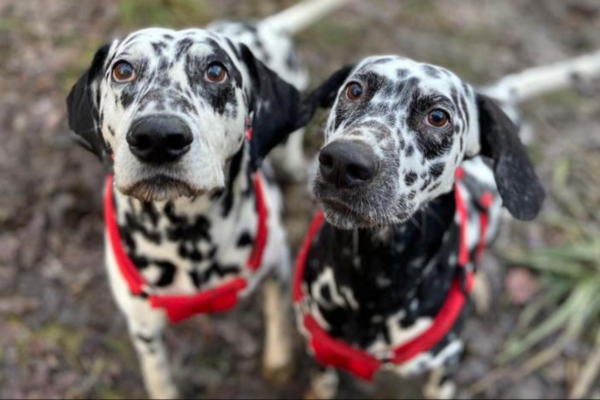What Laws Protect Animals
Written by Alexandria Martins-Hesp
Marketing Executive
In honour of World Animal Day (October 4th), we will be shining a light on the UK laws protecting our animals and the level of care our pets have a right to receive. We also have some special furry guests joining us on today’s blog… say ‘hello’ to the pets of Greystone!

Meet Tilly & Pickle! Owned by Georgia Milton|Personal Injury Paralegal.
What are animal rights laws?
There are many laws in the United Kingdom that are designed to protect our animals from cruelty.
The first general animal protection law came into effect in 1911 and was named the Protection of Animals Act. This was eventually replaced in 2006 with The Animal Welfare Act, an overhaul of pet abuse laws that combined more than 20 pieces of legislation into one.

Meet Rosie! Owned by Bill Lampitt
What are the laws against animal cruelty?
Section 9 of the Animal Welfare Act states that “a person commits an offence if he does not take such steps as are reasonable in all the circumstances to ensure that the needs of an animal for which he is responsible are met to the extent required by good practice.”
In short, the Act indicates that those who own animals must provide the correct level of care. The RSPCA states that there are 5 areas of animal welfare needs that must be met.
The five animal welfare needs
• Need for a suitable environment
Provide enough space so the animals can express their physical and social behaviour. The environment should also be secure and adequately hygienic to prevent disease transmission between animals and between humans and animals.
• Need for a suitable diet
Animals must have regular access to freshwater. Food must be provided in a way and a frequency suited to the species, giving all necessary nutrients and being of adequate quality, quantity, and variety.
• Need to be able to exhibit normal behaviour patterns
Animals need adequate exercise and an environment to express their ‘normal’ behaviour; however, this will vary depending on the species. For example, cows need to graze and chew, cats need a post to scratch, and dogs need frequent opportunities to run around.
• Need to be housed with, or apart, from other animals
Each animal is different in relation to what its appropriate social grouping is. Some pets are natural introverts and should live on their own. Other animals are more social and are best cared for when they are homed with at least one of their own species.
• Need to be protected from pain, suffering, injury, and disease.
This includes vaccinating animals, observing animals’ physical health, treating any injuries, and providing appropriate medications.

Meet Persia, Bagel, Worf, Sox, and Sandy! Owned by Collin|Practice Manager.
What is the punishment for cruelty to animals?
The Animal Welfare Act introduced stricter penalties to those who are found guilty of inflicting cruelty and neglect on animals. These penalties include fines of up to £20,000 and a lifetime ban on owners keeping pets.
As of June 2021, the Animal Welfare (Sentencing) Act also increased the maximum jail term for those caught causing animal cruelty from six months to five years. The Animal Welfare Act also grants more powers to the RSPCA and other enforcers to intervene if they suspect a pet is being neglected.
Sources:
https://www.rspca.org.uk/whatwedo/endcruelty/changingthelaw/whatwechanged/animalwelfareact
https://www.bbc.co.uk/ethics/animals/defending/legislation_1.shtml













